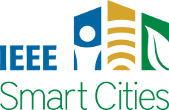June 2022
Smart Cities June eNewsletter - Best Practices and Development of Smart Cities Standards - Part 1
For a downloadable copy of this eNewsletter, please visit the IEEE Smart Cities Resource Center.
Resource Center Update: Improved user experience for IEEE members! Access/Download free products without a checkout process.
Written by Bernard Fong
Collective efforts in defining standards for smart cities have been gaining popularity over the past couple of years due to the fact that many parts of smart city development entail the integration of new technologies into existing infrastructures and systems.
Written by Kiana Etemadi and Alireza Fereidunian
Smart cities performance evaluation and measurement can widely regarded as a standardization process. Various government agencies and organizations have worked on evaluating different parts of smart cities’ instructures and services through different frameworks. This article focuses on two important people-centric smart cities assessment frameworks, namely Smart City Measurement Framework, proposed by OECD, and IMD-SUTD Smart City Index (SCI). The two frameworks are discussed and compared in terms of six criteria, concluding that they are essentially similar. The following strategies are recommended to evaluate the smart cities' performance: measuring the performance of smart cities on a regular basis, reflecting all dimensions of smart cities objectives, capturing stakeholders’ engagement, and comparing cities on different scales.
Written by Deborah Hagar
This is an initial report on the exciting work that has begun with the P7010.1 Working Group that features Recommended Practices for Environmental Social Governance (ESG) and Social Development Goal (SDG) Action Implementation and Advancing Corporate Social Responsibility (CSR).
Written by Chun Sing Lai
This IEEE P3166 Standard on Smart City Terminology is sponsored by the IEEE Systems, Man, and, Cybernetics Society with co-sponsors such as IEEE Industrial Electronics Society, IEEE Industry Applications Society, IEEE Technology and Engineering Management Society (TEMS), IEEE Power and Energy Society.
Written by Jim Frazer
Smart City planning covers a large range of human factors, stakeholder communities, applications, and technologies. The IEEE P2784 follows the system engineering process to ensure that solutions are embraced by a consensus of stakeholders, while being explicitly defined and managed from conception to commissioning, to operations to retirement. This process ensures the maximum impact of benefits in minimum time and at minimum net cost.
To have the eNewsletter delivered monthly to your inbox, join the IEEE Smart Cities Community.
Past Issues
To view archived articles, and issues, which deliver rich insight into the forces shaping the future of the smart cities. Older eNewsletter can be found here. To download full issues, visit the publications section of the IEEE Smart Cities Resource Center.



